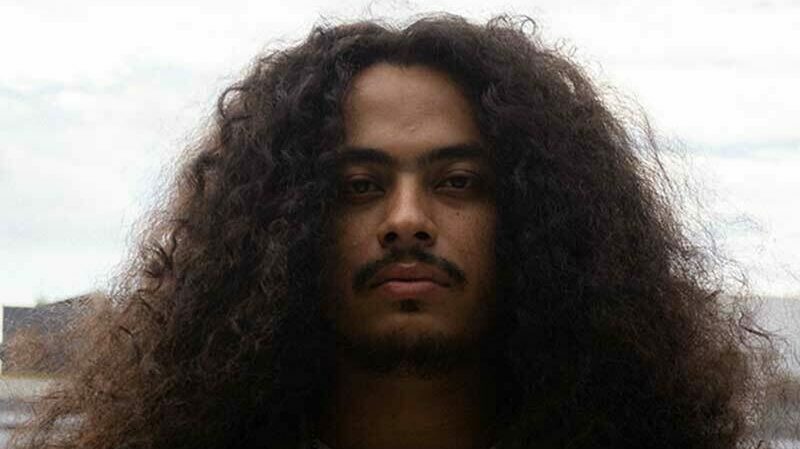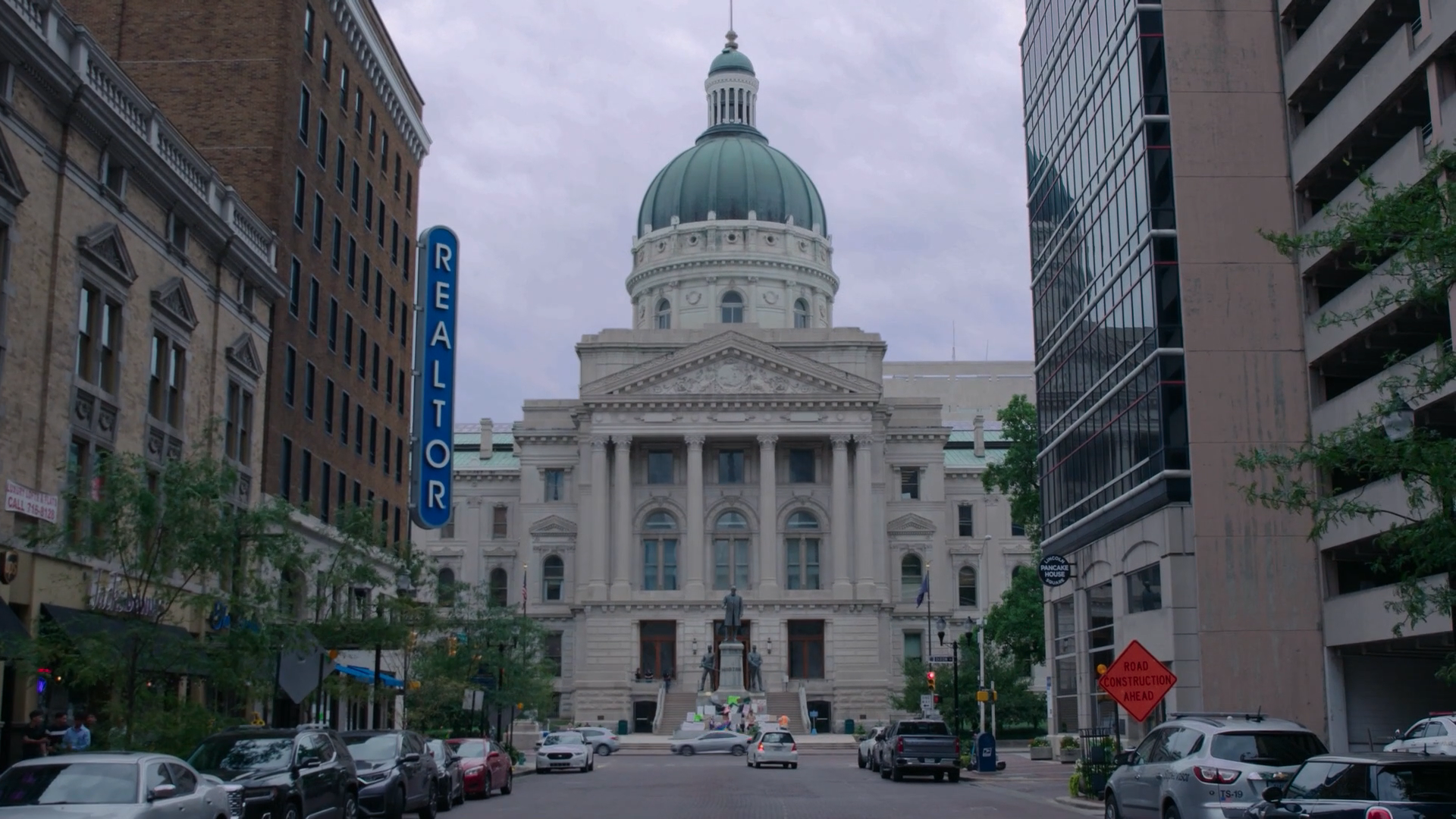Survivorship Meets Sportsmanship Meets Filmmaking
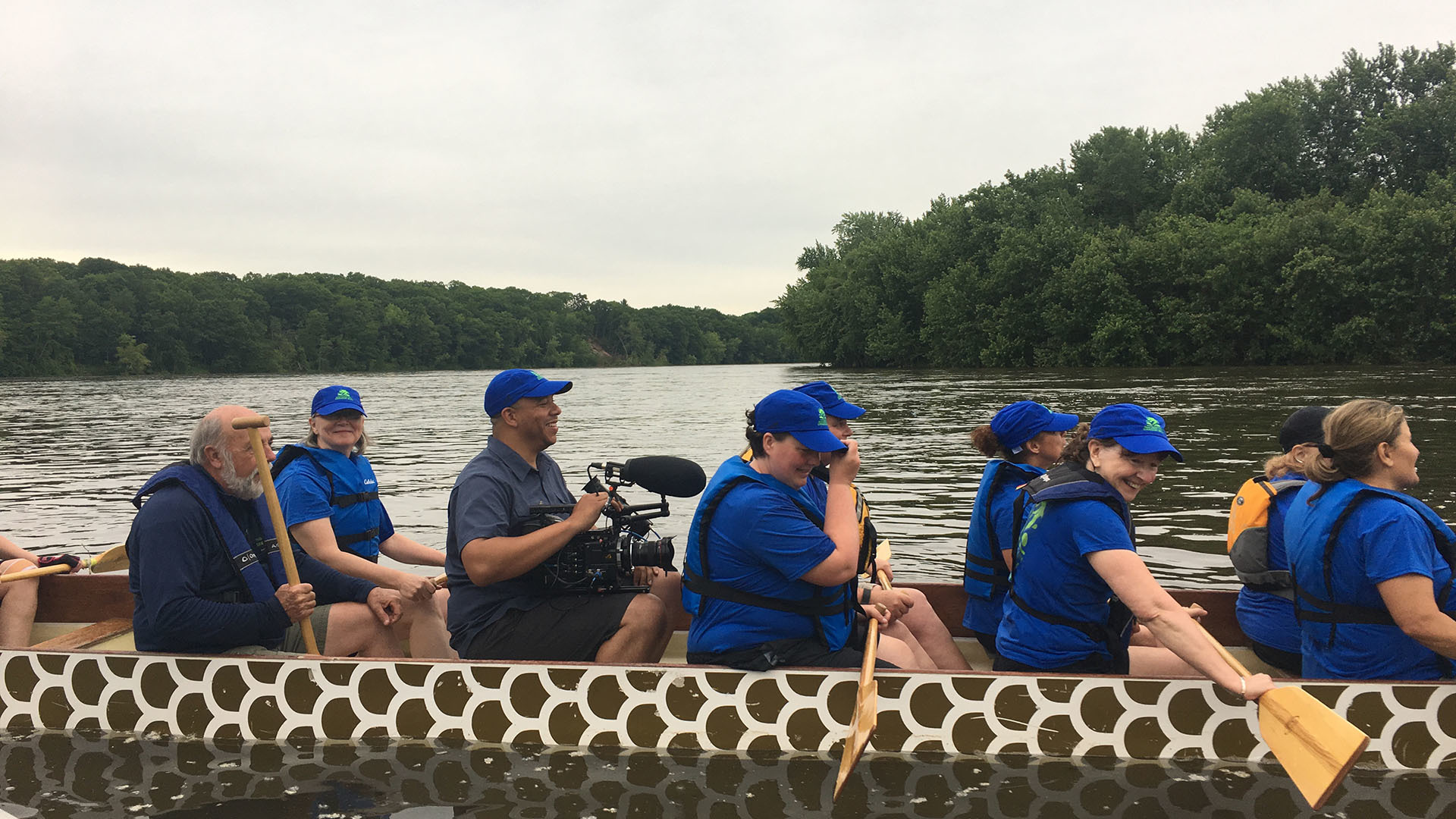
Chicago-based Director and Producer Katie Prentiss Onsager is the co-founder of Small Forces — a pro-bono filmmaking company working to raise awareness of "small" people making big changes in their communities — and no stranger to the PBS Short Film Festival. Her film "BT Lives in the Stitch" was awarded "Most Popular" film in 2019.
Recently, Illinois Public Media spoke with Prentiss Onsager on the making of "Paddle Together," which is featured in this year’s festival. "Paddle Together" follows the Paradise City Dragon Boat team of breast cancer survivors and supporters as they paddle a 20-person boat down the Connecticut River, finding support, understanding, and fitness along the way. For these athletes, survivorship meets sportsmanship.
Illinois Public Media: How did you first come to learn about breast cancer patients/survivors dragon boat racing for health and camaraderie?
Katie Prentiss Onsager: About four years ago, Randi Zuckerberg interviewed me on her Sirius XM Radio Show "Dot Complicated" about Small Forces, which is a series of documentary short films about people who creatively help their communities. As soon as the interview aired, I received an email from Donna Salo, the Paradise City Dragon Boat team captain that said, "I have a story that embodies the spirit of Small Forces. Call me." After talking to Donna, I was convinced this story would make a compelling short film about survivorship and sportsmanship and made plans to start production in Massachusetts.
Illinois Public Media: What drove you to telling this story with this particular team of athletes?
Katie: Cancer survivors are often told by well-meaning friends and family that they are strong, even though they might not feel that way. This sport provides a way for them to actually feel strong. Creating this film about the team allowed them to see that strength within themselves reflected and amplified. The team is also a support system for those breast cancer survivor/athletes year-round. I loved that as a model of care, as opposed to many breast cancer support activities that are often concentrated in one month or one event.
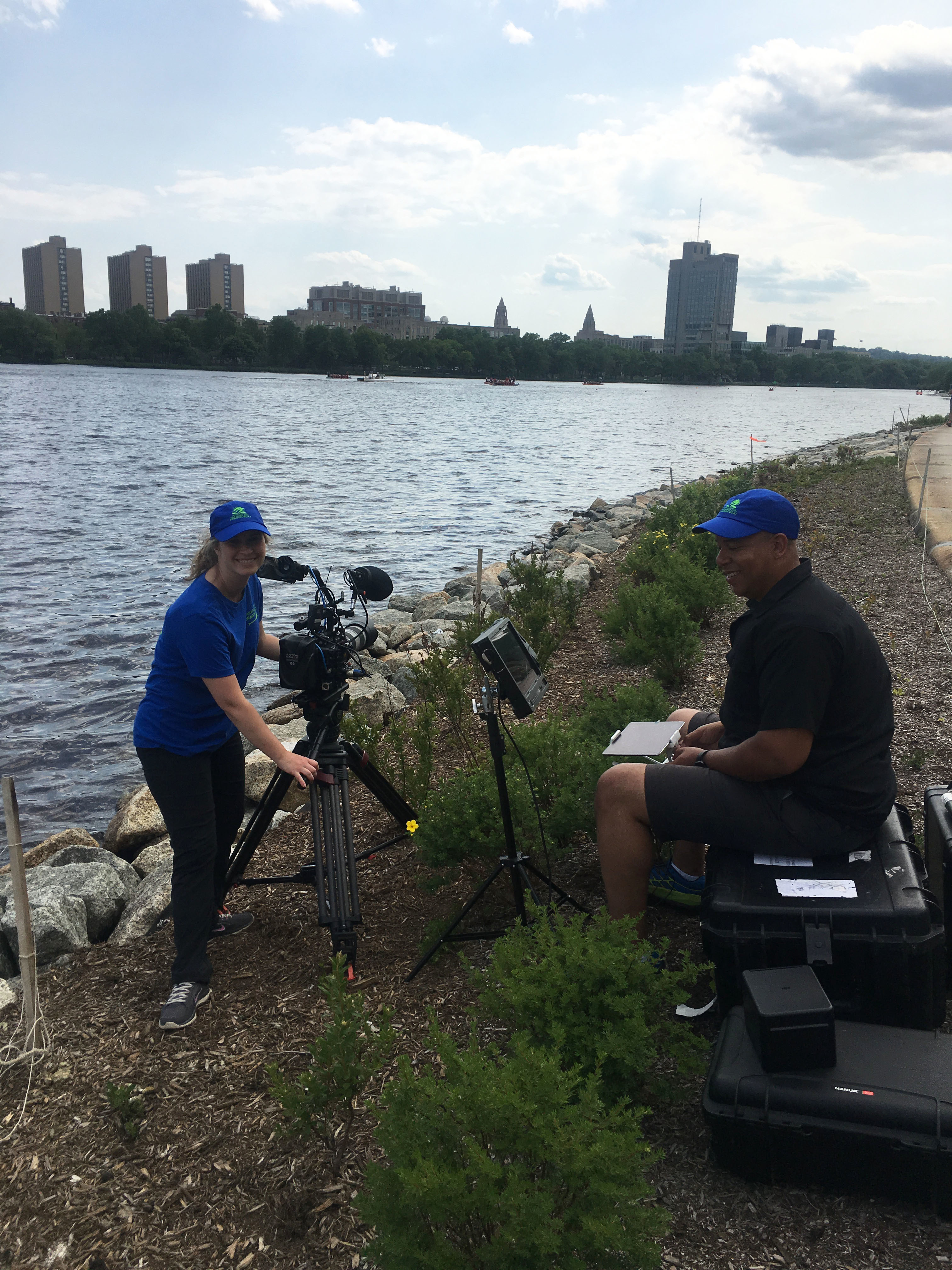
Illinois Public Media: Throughout the process of making this film, what did you learn from being around these women? Are there any lessons we can apply to our own lives?
Katie: The women care deeply about not only each other, but also their community. What has made them strong as a team is not only their ability to paddle together, but also what they do off the water. They make care packages for local children going through cancer treatment. They march together in their town’s pride parade. Even though the team is meant to function as a support group for them as cancer survivors, they arguably get more out of helping others. I try to carry these lessons with me ever since I met the remarkable women of Paradise City Dragon Boat.
Illinois Public Media: Did the story of one character or characters in the film really stand out to you? And why?
Katie: I’ve kept in touch with many of the women, and two who have really impressed me are Donna Salo and Anna Symington. They witnessed firsthand the power of the dragon boat team on a group of people who need the support and strength. So, they decided to take the same concept and apply it to their local veteran community. They launched a new team: Veteran Dragon Boat USA. The stories coming out of this new team are so amazing, it has me itching to make a sequel!
Illinois Public Media: So, you shared a behind the scenes clip of your team having to film from a boat. Can you get into the technical aspects of shooting the film? Did you have to do things you have never tried before? What were the challenges and how will that affect your filmmaking approach in the future?
Katie: This film was shot by Corey Lillard, an amazing cinematographer and a frequent collaborator of mine. Corey is always game to go to great lengths to get the best shots, including being on the water and shadowing the dragon boat, and squeezing into the dragon boat himself. Filming the team’s practice was a fun challenge, especially because we were able to have some level of control over the environment (even though we were on a boat!). They were the only boat on the river at the time and could start and stop drills so we could catch up, and stay alongside them.
The harder part of the production was filming their competition in Boston. We were not allowed on the river in a boat, so we camped out on the bank of the Charles River, amidst thousands of spectators to try and capture the Paradise City Dragon Boat team crossing the finish line. We used a drone and a very long lens to make this possible.
In documentary filmmaking, every new story provides new challenges, but that’s what makes this field so fun. Being able to improvise can make a great end product.
Illinois Public Media: What do you hope people take away from watching this film?
Katie: I hope people see cancer survivors in a new light: As strong athletes. I also hope people who feel moved by this story consider bringing this model of care to their own towns, for cancer survivors, or for any other group that could benefit from a therapeutic team sport. Dragon Boat racing is growing in popularity. It’s great for building upper body strength, and since the boats can fit >20 people, it makes for a great team sport.
Illinois Public Media: What does it mean to you to be featured in the PBS Short Film Fest for the second year in a row?
Katie: My team had a truly wonderful experience being part of the PBS Short Film Festival in 2019. We were thrilled when our film, "BT Lives in the Stitch," won the "Most Popular" award — especially because it resulted in a new wave of donations for the knitting group we spotlighted. We’re excited to connect with new audiences again in 2020 and bring another story of human compassion and resilience.
Illinois Public Media: Why do you make films? What is it about that storytelling medium that attracted you?
Katie: I started my career as a journalist because I loved the idea of having a front row seat to history. I decided to shift my focus to documentary filmmaking because my favorite part of the day was interacting with people who are changing their communities for the better. I truly believe that films have the ability to open our eyes, create empathy, change minds and hearts, and therefore, make our world a better place. With Small Forces, we’ve been able to amplify the voices of more than 40 community leaders and programs around the country, across several issue areas. Engaging with these leaders is a constant reminder in my life of the good in our world.
Illinois Public Media: What’s next for you? Can you share anything about the projects you are working on now?
Katie: Last year, during the PBS Short Film Festival, a math teacher in State College, PA saw our film "BT Lives in the Stitch" and reached out to me via email. We started chatting about an innovative way of teaching algebra that she and a few fellow teachers are implementing at their high school. Corey and I traveled to State College in early March to capture their work in action. We ended up filming the last week they were in the classroom for the entire year, due to COVID-19. Teachers have always been heroes, but I think that parents across the country are especially sensitive to that now, after months of balancing e-learning and working. We’re excited to release the film about these fantastic teachers in the coming weeks. Maybe it’ll earn a spot in next year’s PBS Short Film Fest!
As believers in filmmaking for social change, our team is also looking at ways to bring our documentary short series, Small Forces, into classrooms across the country, as a teaching tool for social issues and civic action.
Paddle Together
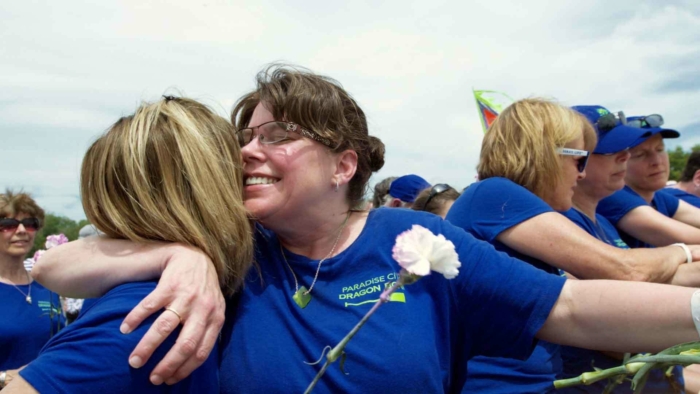
About the Author
More like this
Visit the Behind The Lens Blog